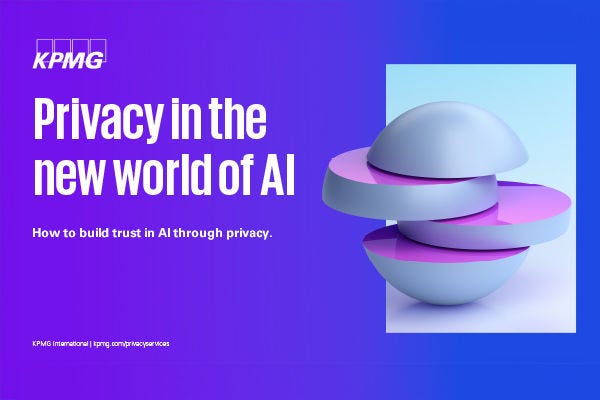Artificial Intelligence (AI) promises to transform our lives, helping to make us more efficient, productive, healthier and innovative. This exciting technology is already being used across the private and public sectors, harnessing the power of data to improve forecasting, make better products and services, reduce costs, and free workers from routine administrative work.
However, as with any emerging technology, there are risks. The widespread and unregulated use of this technology raises concerns about its impact on human rights and personal privacy. This is especially true for generative AI (GenAI), which uses deep-learning algorithms and powerful foundation models that train on massive quantities of unlabeled data to yield output produced by artificial intelligence.
This paper investigates the privacy implications of the widespread adoption of AI. It aims to uncover what this means for businesses and outlines the key steps organizations can take to utilize AI responsibly. By staying informed about the privacy implications of AI adoption and taking proactive steps to mitigate risks, companies can harness this technology’s power while safeguarding individuals’ privacy.










